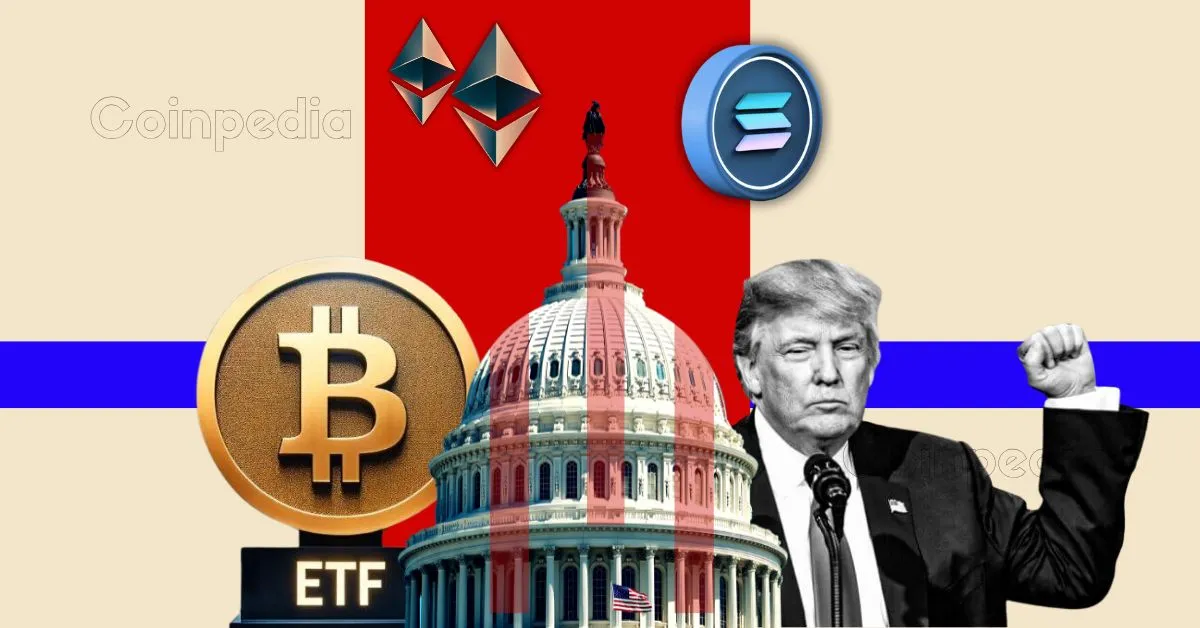When Washington, D.C., lawmakers tune into their favorite Sunday morning political shows this week, they’ll also get a dose of crypto messaging, thanks to a Coinbase (COIN) campaign that’s part of the next stage in the industry’s attempt to influence U.S. policy.
But the efforts from Coinbase CEO Brian Armstrong and a push from Messari CEO Ryan Selkis to build a well-funded movement to steer future crypto rules will land in a U.S. capital still trying to swallow the disasters the fledgling industry provided in the last couple of years.
In 2022, the narrative crypto lobbyists hoped to present to U.S. lawmakers plunged into chaos. The sector’s rampant business failures, frauds, hacking and consumer harms were a big part of that. But the members of Congress who will be responsible for any new crypto laws were also showered with campaign donations – with one in three current members receiving FTX executives’ money – and many of them have had to answer embarrassing questions and struggled to return tainted cash from the company.
As crypto lobbyists rebuild congressional relationships and prepare for a presidential election year, they’ve got a stiff challenge: “Paint a bright picture of the future and try to downplay the negative news events of the last year without pretending that they didn’t happen,” said Ian Katz, a managing director at Capital Alpha Partners, which analyzes policy developments in Washington.
A spokesperson for Coinbase didn’t answer when asked whether the company is considering the troubles of the recent past as it pushes its new campaign. “Coinbase is working closely with policymakers and regulators to get crypto regulation right – and ensure they understand the risks of getting it wrong,” the spokesperson said instead.
Armstrong’s face will appear in black-and-white TV commercial spots in Washington-area broadcasts, advising viewers that “Crypto is the most important technology we have to update the financial system globally.” They’ll carry the campaign’s tagline, “It’s time to update the system.”
Coinbase – linking this campaign with a previous initiative called Crypto435 to directly influence lawmakers in all 435 congressional districts – has also given a bespoke paint job to an armored truck. The vehicle – the kind used to shepherd hard currency to and from banks and businesses – will drive around Wall Street emblazoned with the words: “With Crypto, This Whole Thing Fits in Your Pocket.” And the company intends to otherwise paper the traditional New York center of finance with crypto messaging.
The ad campaign is reminiscent of previous efforts by crypto exchange Gemini, which plastered taxis and train stations with “The Revolution Needs Rules” banners, and Grayscale, which sought to encourage an approval of its Grayscale Bitcoin Trust product to an exchange-traded fund.
Meanwhile, the well known crypto entrepreneur and investor Selkis is expected to throw open the doors to an organization called the Digital Freedom Alliance as soon as next month, according to a person familiar with the situation. Selkis first pitched the idea for a more decentralized group to support crypto policy last year, and had taken to Twitter to encourage an effort he suggested will come from individuals and small firms.
He tried to light a fuse with a letter to the top lawmakers on the House Financial Services Committee that’s been working on crypto legislation, urging them to act quickly. He also forwarded that same note to other crypto-relevant members of Congress.
“Avoidance is no longer an option,” Selkis wrote in the letter he’d also posted on Twitter, though the posts have since been removed from his page. “Digital assets technology will not be uninvented. It has become too established, and offers too much economic promise.”
He called his letter “a first step, but there is much more to do in the upcoming battles.”
In recent crypto hearings on Capitol Hill, the industry that has long prided itself for standing apart from partisan politics was the subject of clear partisan divisions. Republican lawmakers have been much more likely to defend digital assets businesses, while many Democrats have been aligning themselves with crypto-skeptical chiefs of the U.S. financial agencies. That said, there is still some aisle-crossing on the current legislative efforts.
“Some lawmakers will continue to defend the industry, but a lot don’t trust it,” Katz said. “And the industry’s ability to influence policy has diminished, especially with current regulators and Democrats.”
Barron’s reported that Selkis is aiming to build a political-action committee to influence crypto legislation, hoping to raise tens of millions of dollars.
Flooding Congress with crypto contributions was also – generally – the playbook followed by Sam Bankman-Fried, the disgraced ex-CEO of FTX. But it’s tough to measure the success of that widespread campaign largesse, because FTX blew up before Congress started this year’s session. And now Bankman-Fried’s donations are the subject of federal criminal prosecution for allegedly violating campaign-finance laws. That’s the climate Selkis’ effort would be stepping into.
“Repairing whatever damage occurred over the past year is going to happen through the process of better engagement and establishing better understanding with lawmakers that are working on these issues,” said Brett Quick, head of government affairs at the Crypto Council for Innovation. “It’s a longer endeavor to try to repair any trust that was lost.”
She said there’s “broad recognition” in Washington that the FTX collapse was a classic fraud that wasn’t about the technology, and industry representatives are still walking across the broken glass to explain their agenda in the meantime. The crisis even further underlined the need for a “cop on the beat” that crypto businesses have been asking for, she said.
While that day-to-day lobbying work happens, though, millions of U.S. crypto users are eager to make sure Congress is hearing their view that “we want to keep it here and we want to have robust rules,” Quick said, which explains the efforts from business leaders to drum up grassroots campaigns. There’s room for both, she argued – the lobbyists’ usual interactions in Washington, plus whatever the industry leaders are hatching.
“They’re not mutually exclusive,” she said.
Credit: Source link















































